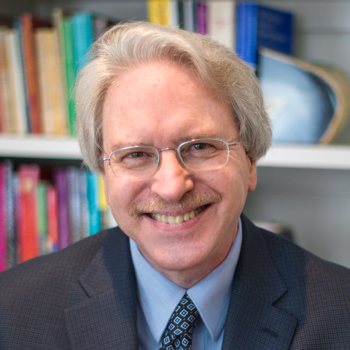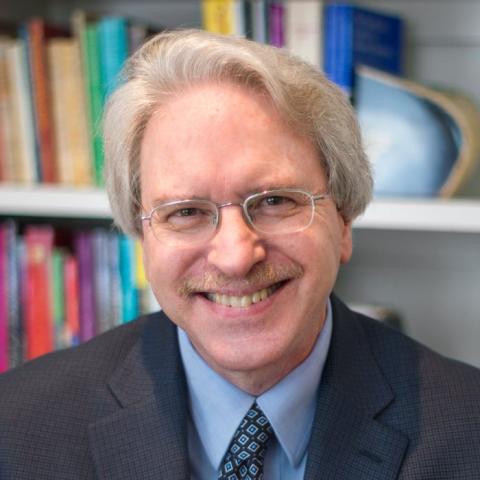A MLK Day Reflection from Kim Benston

Details
On the occasion of Martin Luther King Day, the president writes about the pertinence and power of Dr. King's vision and shares a story of a Haverford connection to the civil rights icon.
The end is reconciliation; the end is redemption; the end is the creation of the Beloved Community. It is this type of spirit and this type of love that can transform opponents into friends. It is this type of understanding goodwill that will transform the deep gloom of the old age into the exuberant gladness of the new age. It is this love which will bring about miracles in the hearts of men.
— Dr. Martin Luther King, Jr., Speech at the end of the Montgomery Bus Boycott, 1956
***
I plan to stand by nonviolence because I have found it to be a philosophy of life that regulates not only my dealings in the struggle for racial justice but also my dealings with people and with my own self.
—Dr. Martin Luther King, Jr., “Showdown for Nonviolence,” 1968
April 1968 is among the cruelest months in American history. The assassination of Dr. Martin Luther King, Jr. on April 4, violent reactions to which rocked more than 115 cities, shocked a nation already reeling from the Vietnam War’s bloody Tet Offensive, which was sending hundreds of thousands of protesters into the streets and sparking uprisings across university campuses. That season of grief and rage arrived like a toxic affirmation of H. Rap Brown’s notorious assertion that “violence is as American as cherry pie.” The connection between domestic and international forms of aggression, which Dr. King had been illuminating for some years, was now laid bare in streets from Memphis to Saigon, leaving civil-rights and antiwar activists struggling to sustain Dr. King’s vision of peacefully sought justice. At the very moment that we lost Dr. King, we were most in need of his insistence on the demanding practice of nonviolent engagement.
The Civil Rights and antiwar campaigns were often viewed by their participants as conjoined in a general effort to return America to its idealistic foundations. But through Dr. King’s influential thinking, many people stretched their vision beyond America and demanded racial justice within the “world house” of an international community. In other words, while Dr. King was not alone in seeing racism and imperialist militarism as sibling features of moral disease in the American body politic, he was singular in prescribing how our national struggle for civil rights could be forged into a global quest for human rights. Building upon a tradition of African-American thinkers from W.E.B. Du Bois and Ida B. Wells to A. Philip Randolph and Paul Robeson, Dr. King came increasingly to view the Civil Rights movement as the American expression of a global upheaval in fundamental relations among peoples.
Resistance to the “triplet of evils” (racism, poverty, and war) was, for Dr. King, necessarily grounded in nonviolence––necessarily, because nonviolence was not merely a tactic but a principle. It was not just the instrument but the essence of a truly free people. By acknowledging the moral significance of all persons including those we oppose, we affirm our own personhood, as Dr. King explained in his remarkable Nobel Prize Lecture of 1964:
I experience this high and joyous moment not for myself alone but for those devotees of nonviolence who have moved so courageously against the ramparts of racial injustice and who in the process have acquired a new estimate of their own human worth. … In a real sense nonviolence seeks to redeem the spiritual and moral lag [that is] the chief dilemma of modern man. It seeks to secure moral ends through moral means. Nonviolence is a powerful and just weapon. Indeed, it is a weapon unique in history, which cuts without wounding and ennobles the man who wields it.
Nonviolence, embraced as an act of will, is the smithy of human identity. Commitment to human dignity transforms passivity into meaningful presence, observers into liberators. Whereas (Dr. King’s lecture asserts) “violence leaves society in monologue rather than dialogue [and] ends up defeating itself,” nonviolence demonstrates the values that it seeks to establish. The readiness to treat humans as ends rather than as means is the path to the “Beloved Community” that Dr. King envisioned as the true destiny of human imagination and experience.
Haverfordians are well prepared to recognize the pertinence and power of Dr. King’s vision, having affirmed for themselves the core principles of care, trust, and respect. Indeed, these very terms evoke the lodestar of Dr. King’s quest––love: that is, the moral integrity and “soul force” capable of establishing and nurturing human solidarity. The overlap of our vision with Dr. King’s is no coincidence; as I’ve discussed in previous MLK Day reflections, Dr. King’s education and the dissemination of his words are bound up with the history of our College and the American Friends Service Committee. This year I want to extend those reflections by sharing another link between our effort to build a microcosmic “beloved community” and his fight to forge a global one: the fact that Dr. King’s Nobel lecture was made possible by the AFSC, including saliently a member of the Haverford family.
Dorothy Steere, wife and collaborator of long-time Haverford professor Douglas Steere and herself a brilliantly devoted member of the College community for many decades, was among the three signatories of the successful letter of nomination sent by the American Friends Service Committee to the Norwegian Nobel Committee advocating the selection of Dr. King for the Nobel Prize. Ms. Steere (for whom, along with Professor Steere, the recently established Steere Professorship in Quaker Studies is named) was deeply involved in the Civil Rights movement from its earliest days, serving on the board of the NAACP, traveling to Montgomery to confer with Dr. King during the bus boycott, exchanging letters with Dr. King throughout that period of his early activism, urging Dr. King to visit India in order to experience directly the legacy of Gandhian nonviolent emancipation and helping to arrange that journey in 1959, and serving AFSC over a period that included frequent dialogue with Dr. King on the meaning of nonviolence.
A tireless Haverfordian Quaker, Dorothy Steere thus partnered with Dr. King’s world-changing advocacy of nonviolence to heal a global community sick unto death from the poisons of racism, hatred, and brutality. Furthermore, she helped promote his visibility on the world stage from which that advocacy could be even more widely heard. Dr. King used the Nobel platform as an opportunity to call for repair of our world’s “broken community,” stipulating that “our loyalties must become ecumenical rather than sectional.” He urged his audience to redeem humanity by exercising the nonviolent discipline of compassion and mutual recognition.
Against our present backdrop of racist insults hurled at people around the world from the highest office in this land; of political games traumatizing 700,000 DACA recipients anxiously awaiting confirmation of their place in this society; of forced labor in refugee detention centers that violate civil rights and international norms; of daily incursions on human worth too numerous to name—against that swelling wave of contempt, animosity, and indifference, let us rededicate ourselves to the nonviolent quest to lift up our common human dignity. Embracing Dr. King’s reciprocal emphases on social rights and personal uprightness, let us defend our freedom by affirming the necessity that our fellow beings, near and far, be likewise free.




